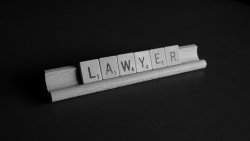The Importance of Seeking Medical Attention After a Car Accident

Why Immediate Medical Attention After a Car Accident Can Protect Your Health and Legal Rights
After a car accident, seeking medical attention is crucial—even if you feel fine. Hidden injuries like whiplash or internal trauma can worsen over time. Learn why prompt medical care is essential for your health, legal claims, and insurance compensation.
By The Editors
Tue, Feb 18, 2025 10:19 PM PST
Featured photo courtesy of Yassine Khalfalli.
Car accidents can be unexpected and jarring, leaving individuals unsure of their next steps regarding health care. While the immediate concern might be the visible damages or insurance, the priority should be health. Seeking medical attention after a car accident is crucial because it ensures that any injuries sustained are properly identified and treated.
Even in cases where someone feels fine after an accident, some injuries might not manifest clear symptoms immediately. Conditions such as whiplash, internal bleeding, or concussions can develop over time. Medical professionals are trained to recognize these issues early, preventing complications that could arise from untreated injuries.
Additionally, obtaining prompt medical care can be imperative for legal and insurance matters. Medical documentation serves as evidence of injuries sustained in the accident, supporting claims and ensuring that victims receive appropriate compensation.
Immediate Actions Following a Car Accident
In the moments after a car accident, a sequence of critical actions can increase safety, support legal processes, and ensure necessary medical care is promptly received. Each step taken can have lasting impacts on recovery and legal proceedings.
Assessing the Situation
First, assess personal safety and the safety of others. Individuals should check for injuries to themselves and passengers. If possible, move vehicles out of traffic to prevent additional collisions.
Turn on hazard lights to alert approaching drivers. Even if there are no apparent injuries, it's crucial to stay calm and think rationally about the next steps. Remaining at the scene is not only legally required in many areas but also integral to addressing any immediate dangers.
Contacting Emergency Services
Dialing 911 or the local emergency number is the next step, even for minor accidents. Emergency personnel can assess injuries that might not be immediately visible and ensure law enforcement documents the incident accurately.
When speaking with emergency operators, it's essential to provide clear information about the location and any obvious injuries. This helps paramedics and police respond appropriately. Even if the accident seems minor, a formal report can be valuable for insurance claims and legal support.
Documenting the Scene
Thorough documentation helps support any future claims or legal actions. This includes taking photographs of the vehicles, damages, injuries, and surrounding environment from multiple angles.
Exchange contact and insurance information with other involved parties. Witnesses can provide crucial, unbiased accounts, so asking for their contact details is advisable. Using a smartphone or a traditional pen and paper, individuals should jot down key facts about the accident, ensuring a comprehensive record of events.
Medical and Legal Considerations
After a car accident, it's crucial to address both medical and legal concerns. Prompt medical attention can help identify injuries, and legal advice ensures proper handling of claims and compensation.
Understanding Whiplash and Other Common Injuries
Car accidents can result in injuries like whiplash, fractures, and concussions. Whiplash is common and occurs when the neck is rapidly jerked forward and then back. Symptoms may include neck pain, stiffness, and headaches.
Though sometimes symptoms appear immediately, they can be delayed. Seeking prompt evaluation and treatment is vital. Untreated injuries may worsen over time and potentially lead to long-term complications. Recognizing symptoms early and getting medical advice helps in managing and preventing severe outcomes. Proper documentation of these injuries is vital for both health recovery and legal support for car accident claims.
Seeking Medical Attention
Obtaining medical attention right after an accident is imperative. Initial assessments can identify hidden injuries and provide a clear overview of the individual's health status. Emergency services or a visit to a healthcare professional should be considered, regardless of perceived severity.
Documentation of injuries from a medical professional is also important for legal purposes, reinforcing any insurance claims. Medical records can substantiate injury claims, assist in faster processing, and ensure that victims receive the deserved compensation. Initial and follow-up medical evaluations offer protection both medically and legally, establishing a timeline for recovery and proving the impact of injuries inflicted by the accident.
Consulting With a Car Accident Lawyer
Consulting a car accident lawyer, such as a McDonough Car Accident Lawyer, provides necessary legal guidance. They assess the accident's details, advise on possible legal actions, and navigate through insurance claims. Legal experts specialize in interpreting the specifics of motor vehicle laws and maintaining clients' rights.
An experienced lawyer helps in gathering evidence, negotiating with insurance companies, and potentially increasing the settlement amount. They offer reassurance and expertise, eliminating stress while ensuring legal processes are followed accurately. Legal representation bolsters chances of fair compensation and ensures that due process is maintained throughout the claim process.






